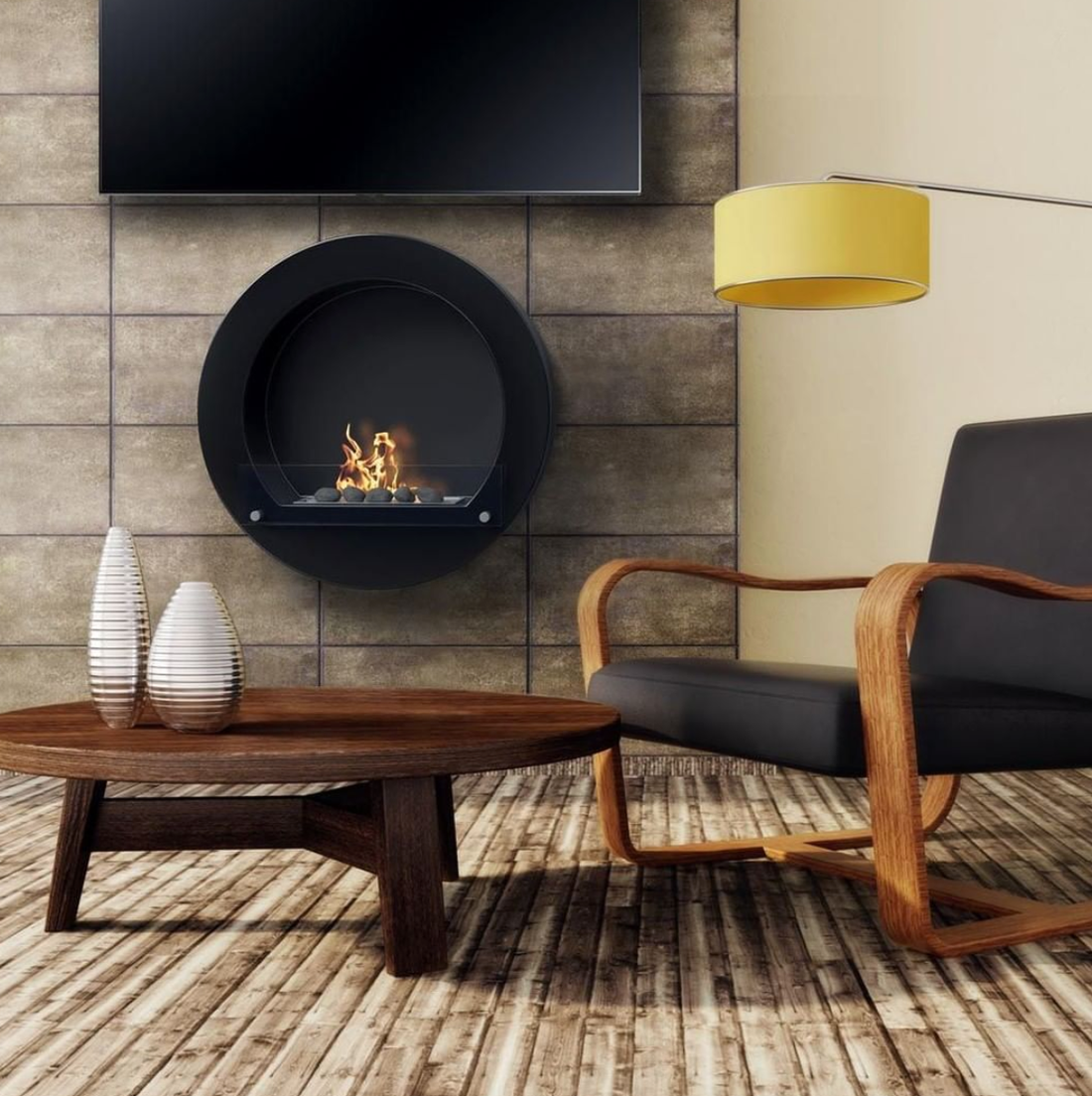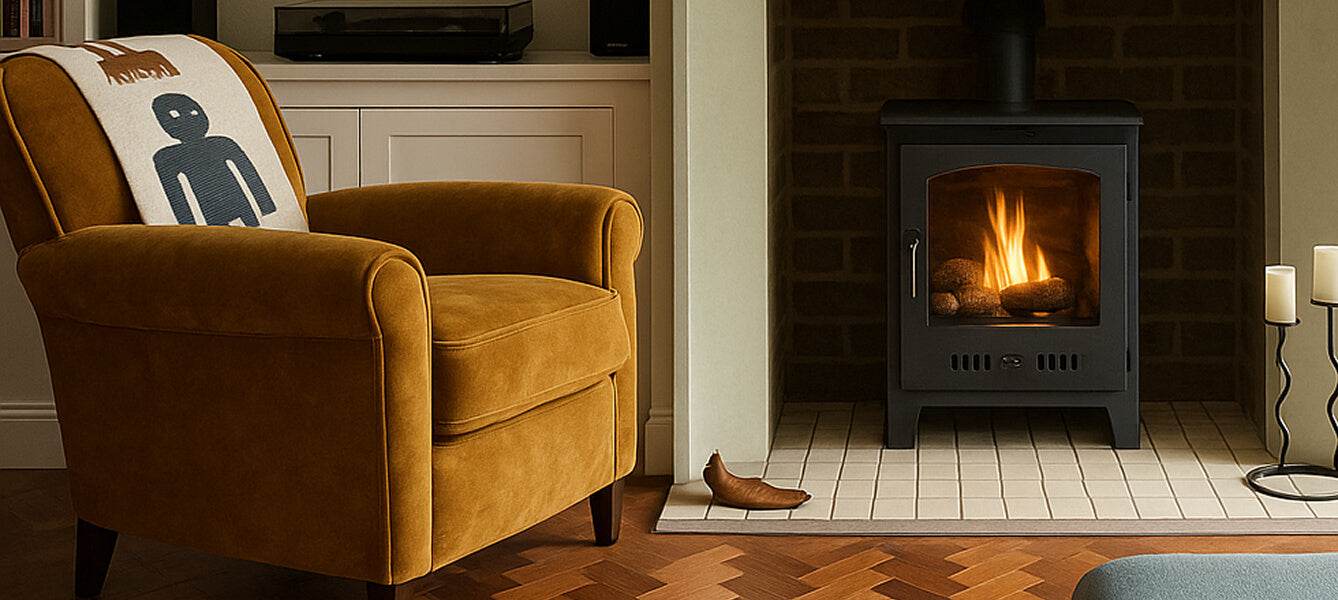
Are Bioethanol Fires Eco-Friendly? Exploring their Environmental Impact
Want to enjoy the beauty of real flames without the guilt of harming the planet? Perhaps you’ve heard the warnings about wood burners contributing to air pollution, or you’re looking for a greener alternative to gas and electric heating. But with so many fireplace options out there claiming to be sustainable, it can be difficult to know which one to choose.
More and more people are now asking us: are bioethanol fires eco-friendly? These fireplaces promise clean, low maintenance flames without the smoke or soot – but do they really live up to their environmental claims?
In this article, we share everything you need to know about the environmental impact of bioethanol fires, so you can make the right choice for your home.
Is bioethanol eco-friendly?
Bioethanol is a renewable fuel that’s usually made through the fermentation of crops such as sugar beet, corn, or wheat. It’s the same type of alcohol (ethanol) that you find in drinks, but refined for use as a clean-burning energy source in a process called denaturing. Unlike fossil fuels, which release carbon that’s been stored underground for millions of years, bioethanol is part of a much shorter, renewable cycle. The plants that make bioethanol absorb carbon dioxide from the atmosphere during their growth, which helps to offset the emissions produced when the fuel is burned.
At imaginfires, all ethanol in our fuel is derived from agricultural crops, which results in a lower overall carbon footprint compared to traditional heating fuels. More on that below…
Do bioethanol fires produce emissions?
Yes, bioethanol fires do produce some emissions, but these are far fewer than other fuels. When burned, bioethanol releases only heat (about the same kWh as a typical domestic electric fire), water vapour, and a small amount of carbon dioxide. But it doesn’t produce any smoke, soot, or ash, which means that no harmful particulates are released into your home or the atmosphere. This is a major advantage over wood burners, which have been linked to rising levels of air pollution in the UK.
This is the main reason why bioethanol fireplaces don’t require a chimney or flue. All the heat stays in your room, with none escaping outside via required flues or chimneys. It’s a modern, low-emission way to experience the joy of real flames, with none of the drawbacks.
You can discover more about bioethanol fireplace emissions in our dedicated FAQ guide.
Understanding the carbon footprint of bioethanol fires
The key environmental benefit of bioethanol lies in its carbon cycle. Because bioethanol is produced mainly from plants, the CO₂ released during burning is roughly balanced by the CO₂ absorbed whilst the crop grows. There is still an environmental cost that comes with farming, harvesting, and refining the crop, but studies show that bioethanol can reduce greenhouse gas emissions by up to 70% compared to fossil fuels.
So, is bioethanol good for the environment? While it’s not entirely carbon neutral, it is significantly kinder to the planet than burning coal, gas, or wood. Plus, because our bioethanol fireplaces require no connection to mains gas or electricity, there’s no hidden energy costs – just simple and efficient heating where you need it most.
Good for the planet and your health
Beyond the wider environmental considerations, there’s also the health of your home to think about. Because bioethanol fires don’t release any smoke, they won’t negatively affect your indoor air quality. That means no lingering odours, no soot marks on your walls, and no worries about inhaling potentially harmful dust particles. So, bioethanol fires aren’t just better for the planet – they’re also better for your everyday living environment.
Get ready to experience the joy of real flames in a cleaner, greener way
At imaginfires, we offer a wide range of contemporary bioethanol fireplaces, along with high-quality bioethanol fuel, to help you enjoy that “real flame” feeling with minimal environmental impact. Whether you’re looking to purchase your very first fireplace or you’re considering making the switch from wood or gas to bioethanol, we’ll help you find the perfect design that suits both your home and your lifestyle.
Explore our full range of bioethanol fireplaces today and discover just how effortless, atmospheric, and eco-friendly biofires can be.
